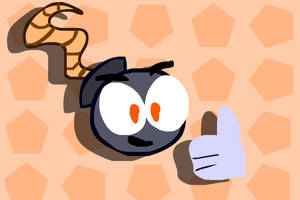
Confronting copying can elicit strong emotions. It is easy to take it personally. Emotions can escalate quickly to fuel hostile accusations and recriminations. Acting under strong emotions can push us to fixate on the problem and not pay attention to the solution. Don’t be quick to judge; the copying may not have been malicious. It is important to try and stay calm and objective; try not to jump to conclusions.
Some people consider copying the highest form of flattery — but most people don’t. Some companies as part of a marketing plan subtlety encourage copying as a way to spread their message or to grow a fandom. Particularly on the Internet, people frequently want their work to be re-purposed and shared liberally so that it spreads virally.
Artists can choose to remain anonymous on the Internet when they post so that when they are copied it can be hard to find them — or when someone wants to copy what they have posted it can be impossible to ask permission.
Because the standards and types of behavior related to copying are changing, people can easily assume that’s it’s OK to copy. They may be wrong but they also may not know that what they are doing is wrong.
In most cases copying isn’t directed at the author of the work. It’s logically directed at using the work itself for some purpose. Examine what was copied and why:
Was it just an idea or did they actually copy your expression — your version of the idea? Remember, copyright protects the expression of ideas; no laws protect the ideas themselves or things like common compositions in visual art.
Was the part that was copied something that the original work also copies, like a well-known character?
Could the context of the copying suggest that the person thought they had permission to copy?
Was there a license or maybe just a conversation, chat or comment exchange that maybe confused the person responsible for copying?
Are you reacting to someone copying content that you didn’t create? Maybe you should tell the original artist instead of confronting the person who you think made the copy. The original artist may have a completely different point of view on the situation.
If you decide you need to stop the copying, find a calm way to approach the person who made the copy. Consider how you would you respond to someone accusing you of wrongful copying if you thought you had done nothing wrong.
Regardless of what side you are on, take the time to see things from the other person’s point of view. By being understanding, we are more likely to be understood.
When you do decide to take action, and if you can, start with a conversation. On DeviantArt, that conversation can be private in the form of a Note or public in the form of a comment. Many people include an email contact in their profiles, which can be another way to reach them. Listen to each other and let both of you talk about the limits that should apply to the copying in question. See if there is a way for the two of you to come to an understanding about it. Of course, that may be impossible depending on the circumstances and the personalities involved.
If conversation can’t produce a resolution, then consider reporting the situation. Some websites allow you to flag content considered infringing or offensive. If the infringing work persists, you may consider contacting the website itself. On DeviantArt, every deviation page has a “Report Deviation” link in the right hand column. If the copying is a serious commercial problem, you should consider contacting a lawyer at this stage.
A formal takedown notice, only available to the copyright owner, should be a last resort. It is an official legal request by the copyright owner to the website requesting that it takedown specific infringing content. Nearly every website has a contact for takedown notices, also known as a DMCA notice (which stands for the Digital Millennium Copyright Act). Some websites, like DeviantArt, have an online form you can fill out with the necessary information. Always be sure to follow the website’s instructions carefully. Misrepresenting something on a DMCA takedown notice is illegal.










